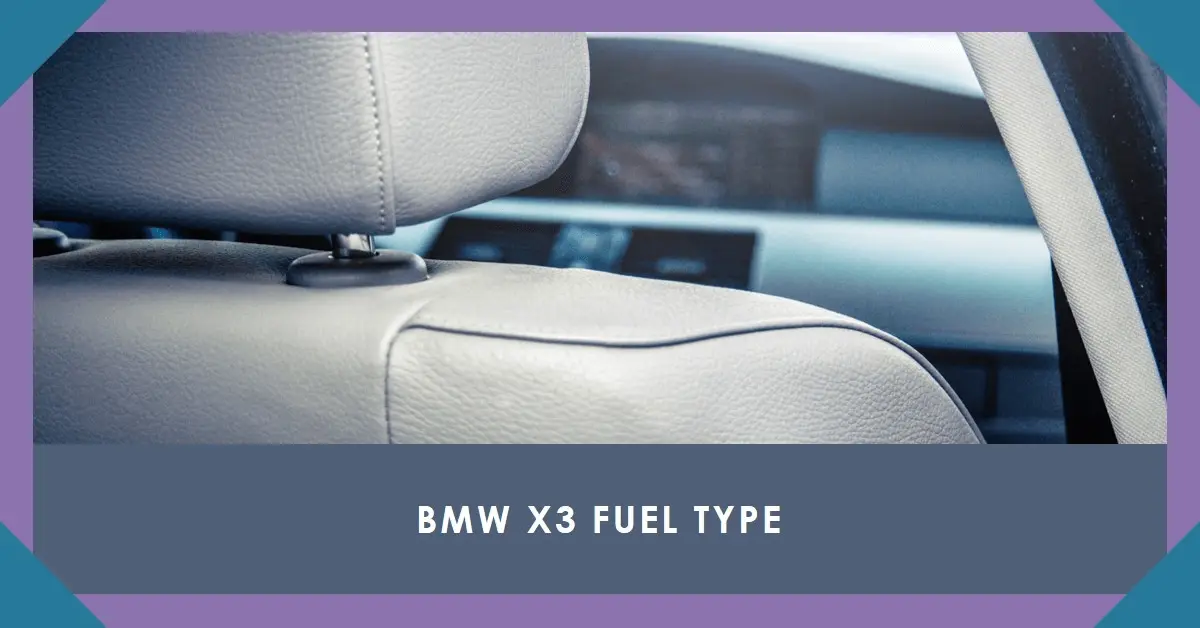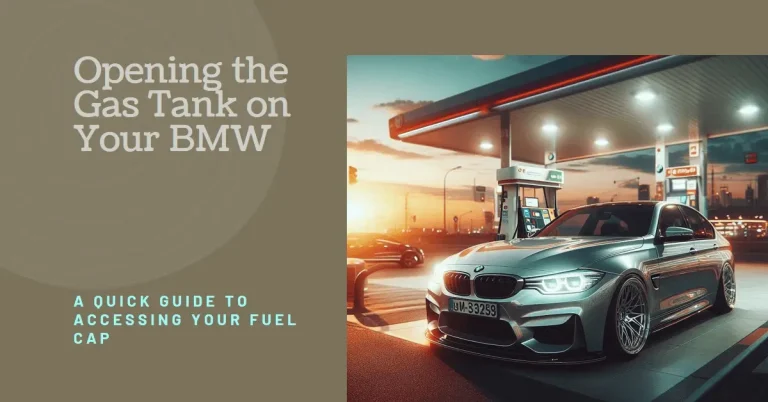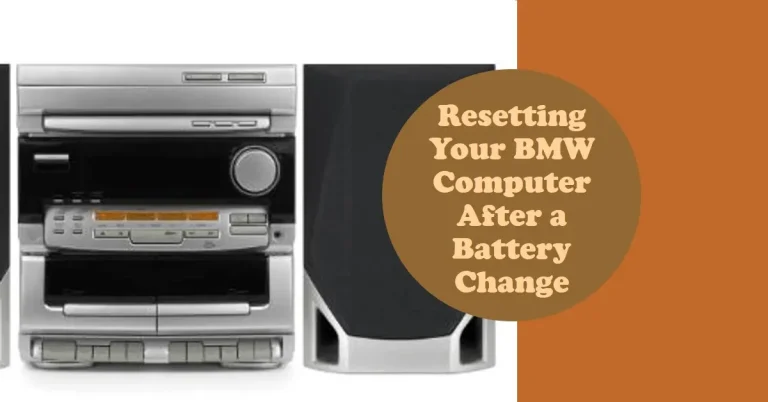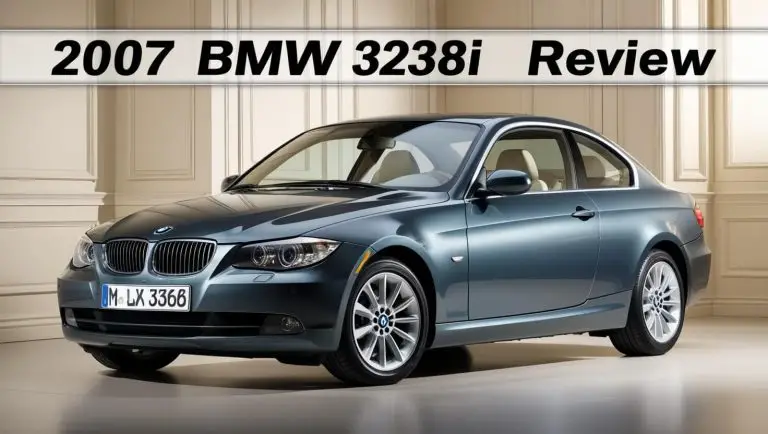What Type of Gas Does the BMW X3 Require?
If you drive a BMW X3, you may wonder what type of fuel is recommended to power its high-performance engine. After all, using the right gasoline is important to keep your luxury SUV running smoothly while avoiding potential engine issues.
The BMW X3 requires premium unleaded gasoline for optimal operation, according to recommendations from BMW. The high-compression engines in BMW vehicles call for higher octane fuel to prevent knocking and deliver full performance capabilities.
In this comprehensive guide, we’ll dive into all the key details on the best gas for BMW X3 models, what can happen if you use regular gasoline, and tips to keep your vehicle’s engine performing at its peak.
BMW’s Recommended Gasoline Grade for X3 Models
BMW is clear about the recommended minimum octane rating for gasoline used across their vehicle lineup, including the popular X3 compact luxury SUV.
- BMW states that drivers should use premium unleaded gasoline with an octane rating of at least 91.
- For optimal performance and operation, BMW recommends using premium fuel with a 93 octane rating if available in your area.
- The need for higher octane gas stems from the high compression engines featured in many BMW models, including turbocharged options. Higher compression increases efficiency and power output.
- Premium fuel with higher octane is less likely to combust prematurely, which can lead to damaging engine knocks and pings.
Using the recommended grade of premium gasoline allows your BMW X3’s advanced engine to operate at peak efficiency for responsive acceleration and solid fuel economy.
Risks of Using Regular Gas in a BMW X3
While the owner’s manual for BMW X3 models may state that you can use regular 87 octane gasoline in a pinch, doing so regularly is risky:
- Numerous BMW X3 drivers who have used regular gasoline report hearing annoying engine knocking or pinging noises.
- The lower-quality fuel can cause performance issues including loss of engine power and acceleration.
- Over an extended period, the premature ignition of fuel caused by low octane gasoline can damage the BMW X3’s high-performance engine.
To prevent these issues and operate as designed, a steady diet of premium grade 91+ octane gasoline is recommended for all BMW X3 models from the first generation up through the latest 2023 editions.
Exception – Diesel BMW X3 Models
Most BMW X3 SUVs sold in the US and Canada use gasoline for fuel. But there are some special diesel BMW X3 models as well:
- The X3 20d and 30d trims feature turbocharged diesel engines instead of gasoline powerplants.
- For these turbodiesel-equipped BMW SUVs, the recommended fuel is ultra-low sulfur diesel or ULSD rather than gasoline.
- As with gasoline X3 variants, BMW calls for these diesel-powered models to use premium grade diesel fuel for optimal operation.
- Using higher cetane premium diesel can improve performance and fuel economy in BMW’s advanced diesel engines.
So if you drive an X3 20d or 30d, be sure to fill up with premium diesel rather than gasoline to follow BMW’s fuel recommendations.
Occasional vs. Regular Use of Regular Gas
What if you need to use regular gasoline in your BMW X3 temporarily?
- Putting in a tankful of regular gas instead of premium once in a while won’t immediately cause issues or noticeable problems in most cases.
- However, exclusively using lower 87-88 octane gasoline instead of 91+ octane premium fuel on a regular basis in a BMW X3 is strongly discouraged.
- Over time, the continual use of regular gasoline can lead to accelerated engine wear, spark plug fouling, loss of power and fuel economy, and other drivability issues.
BMW notes that the engine control module can compensate for a lower octane fuel on temporary basis. But for optimal operation and engine longevity over the long run, consistently using premium 91 or higher octane gasoline is still recommended for all X3 models.
Owner-Reported Effects of Using Regular Gas
Some BMW X3 owners who have Ignore the recommendations and used regular gasoline for an extended time report various issues cropping up including:
- A check engine warning light coming on due to engine misfires or knock sensor alerts
- Noticeably worse fuel mileage figures after switching from premium fuel
- A significant lack of engine power and acceleration
- Increased engine noise/knocking during acceleration
These real-world reports back up why using the recommended premium gasoline is the wise choice for getting the most out of your BMW X3’s performance and preserving the advanced engine’s longevity.
Gasoline Octane Rating Explained
But why exactly is a higher octane rating so important for a BMW engine? What does that octane number mean?
- Octane rating is a measure of fuel’s resistance to unintended ignition during the engine’s compression cycle known as engine knock or detonation.
- Higher octane gas is more resistant to this abnormal combustion even under high compression, generating smoother power delivery.
- Premium 91+ octane gasoline better withstands the demands of BMW’s high-performance turbocharged and non-turbo engines without knocking issues.
Using the manufacturer-recommended premium fuel ensures optimal ignition timing and allows the precision-crafted BMW X3 engine to operate as intended – without performance or longevity compromises over time.
Premium Gasoline vs. Regular Gasoline
Given the performance benefits, is it worth paying extra for premium gasoline in your BMW X3 rather than going with cheaper regular gasoline?
- Premium gasoline typically has an octane rating of 91 or higher, while most regular gasoline is 87 octane.
- The higher 91+ octane rating of premium fuel makes it more resistant to abnormal ignition.
- This allows it to better cope with BMW’s high-compression engines without knocking or misfiring.
- Premium gasoline also features detergent additives to help keep fuel injectors and key engine components cleaner.
- Expect to pay around 15-30 cents more per gallon for premium vs. regular gasoline.
- Over the long run, potential savings on repairs and maintenance make premium gasoline the wise investment for BMW engines.
In addition to avoiding headaches, paying a bit more for premium fuel helps your BMW X3 engine – whether turbocharged or naturally aspirated – perform at its peak.
How Gasoline Ignition Works in Car Engines
To understand why BMW specifies premium gasoline, it helps to comprehend how fuel ignition works within a gasoline engine:
- During the compression stroke, an engine’s rising temperature, pressure, and air density allow ignition of the atomized fuel air mixture before the spark plug fires.
- If this early ignition happens, it creates a loud metallic knocking or pinging sound
- Premature ignition can also generate a sharp pressure spike and harness excess heat.
- This abnormal combustion can cause engine damage over time. Lower octane fuels have higher risk of early ignition.
- By contrast, higher octane premium fuels strongly resist early combustion, enabling smooth, timed ignition.
Using 91+ octane premium gasoline optimizes this cycle in BMW’s performance-oriented engines, allowing for precision ignition timing, maximum efficiency, and reduced wear.
Checking Your BMW X3’s Engine Knock Sensors
If you suspect early ignition issues from using regular gas based on hearing knocking noises under acceleration, check your BMW X3’s onboard engine management system:
- BMW X3 models are equipped with engine knock or detonation sensors that detect abnormal combustion events.
- If the engine control module detects early ignition, it can pull ignition timing to prevent damage, resulting in loss of power.
- You can access and view BMW knock sensor data via onboard diagnostics menu or dashboard warning lights in some models.
- Seeing active knock alerts confirms abnormal fuel ignition is occurring and premium gasoline should be used instead moving forward.
Keep an eye on cylinder ignition timing and knock sensor data to optimize your X3’s gas and performance needs.
Steps if You Have Used Regular Gas in Your BMW
Have you filled up your BMW X3 with regular gasoline recently? Here are important steps to take:
- If you hear any engine knocking or pinging after using regular gas, address the issue immediately rather than just living with it – this can cause long term damage if ignored.
- Seek out a trusted BMW mechanic for a checkup, and switch back to using premium grade unleaded gasoline exclusively moving forward.
- In some cases, higher-mileage BMW engines may need replacement oxygen sensors, ignition components, or fuel injectors after running on regular gas for long periods.
- Catching issues early and using the recommended 91+ octane premium fuel can help restore performance and engine efficiency.
- Using a top tier fuel system cleaner such as Chevron with Techron can also help reverse negative effects of regular gasoline use.
While the rare use of regular gas likely causes no harm, extended use can – so switch back to premium to play it safe.
Fuel Cost Savings – Regular Gas vs Premium Gas
When fuel prices spike, it’s tempting to use cheaper regular gasoline in your BMW X3 rather than premium to save money at the pump. But take care, as this false economy can cost you in the long run:
- Depending on your locale, expect to pay around 15-30 cents more per gallon for 91+ octane premium gasoline over cheap 87 octane regular fuel.
- For a BMW X3 with 15 gallon tank, that’s just $2 – $5 more per fill up – a small price to pay to avoid thousands in potential engine repairs down the road.
- Any perceived savings with regular gasoline can quickly be outweighed via reduced fuel economy, costly ignition repairs, and reduced BMW trade in value from engine issues.
- Using the manufacturer-recommended premium fuel optimizes performance and efficiency, while helping your BMW X3 engine go the distance.
Sticking with quality premium gasoline is wise to maximize engine longevity and your driving enjoyment in a BMW X3.
Additional BMW Performance Tips
Beyond choosing the right gasoline, here are some other areas focus on maintaining peak operation of your BMW X3:
- Follow the factory recommended maintenance schedule for oil changes, fluid flushes, spark plug replacement, and inspections.
- Adhere to the break-in period when you first get your BMW – gentle acceleration and varying engine speed for the first 1000 miles.
- Make use of BMW’s eco-driving mode for lighter throttle application and optimized gear shifting until engine is warmed up.
- Ensure proper tire pressure – underinflation reduces fuel economy and tires wear more rapidly.
- Use a fuel cleaner such as Red Line SI-1 periodically to remove deposits and prevent carbon buildup.
Combine the right gasoline grade with proactive maintenance, and your BMW X3 will offer a smooth, powerful, and knock-free operation for years of driving enjoyment.
Conclusion
The BMW X3 offers refined performance and luxury SUV capability. But keeping your turbocharged or non-turbo engine running in optimal condition depends heavily on using the recommended 91+ octane premium gasoline rather than cheaper regular gas.
Supplying BMW’s high-compression powerplants with top tier premium fuel enables precision ignition timing while preventing damaging early ignition events. Though you can get by on regular gasoline temporarily, making it the rule rather than the exception invites decreased performance, efficiency losses, bothersome knocking noises, and unwise long term engine wear.
Treat your BMW X3 to a steady diet of 91+ octane premium gasoline, and you’ll enjoy responsive BMW power delivery and head turning brand cachet while racking up happy miles behind the wheel.







